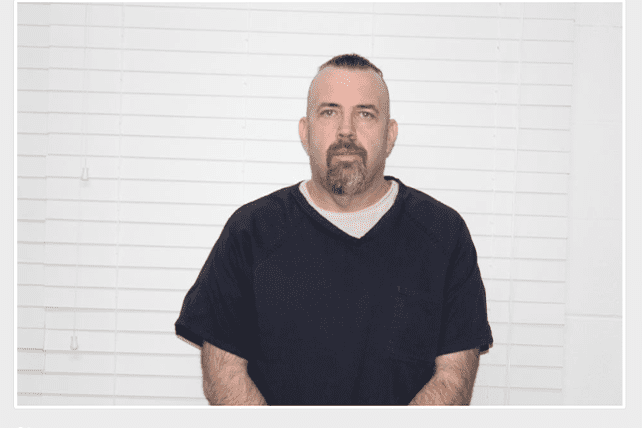Anxiety in children is on the rise. Read on for information about what anxiety is and how to help kids through anxious moments. Also learn what our Father God wants us to remember during anxious times.
Anxiety in Children: A Personal Problem
I remember the exasperated look on her face. This parent of a 6-year-old was baffled by her child’s unwillingness to board the school bus. She didn’t want to attend Sunday school or venture away from the safety and comfort of home much at all.
This once-ambitious toddler had become an anxious grade-schooler who just wouldn’t budge. And no one knew why.
As her children’s pastor, I was puzzled too. My kind smile and small talk didn’t soothe her. Pairing her with a peer buddy didn’t help. Saying we’d miss her or promising to do her favorite things didn’t change her mind. She was not leaving mom and dad. Time passed and, much to her parents’ relief, she seemed to “grow out of it.” I was thrilled to see her sing solos, read Scripture, and love Bible adventures again.
Years later, I personally experienced debilitating anxiety—the kind that made me physically brace myself for undefined harm that could come my way. Anxiety told me that doing things I once loved would hurt me. It made me flee mundane situations that just felt like too much. Once again, anxiety baffled me.
As I worked through this new, unwelcome condition with a therapist, I recalled my young friend and her family from years past. I now have a new level of empathy, compassion, and patience for the children and families in my life who live with it, too.
Anxiety is no longer an issue—it’s personal. It’s not a problem to fix for kids. Anxiety is a valid, though unwanted, condition to acknowledge and work through. Perhaps you regularly work through it, too.
Anxiety in Children Is on the Rise
You may have heard that anxiety in children is increasing. It’s true. According to an article on American Family Physician’s website, “anxiety disorders are the most common psychiatric conditions in children and adolescents, affecting nearly 1 in 12 children and 1 in 4 adolescents.”
It’s tempting to become anxious and worried about the anxiety epidemic, isn’t it? But as people who love and care for children today, let’s take a deep breath (really!). Know that anxiety in children is also more treatable than ever. (This article from the American Psychological Association recognizes both the issue and the improvements in care that offer hope and help to families and individuals who now struggle with anxiety.)
Although anxiety impacts 21st-century life in new ways, it doesn’t change God’s steadfast love and care for his children—including you and me.
Overcoming Anxiety
The first step to overcoming anxiety is understanding it. For me, that came through personal experience and through helpful conversations with licensed therapists, like my friend Mandy.
Mandy Milner is a licensed professional counselor. She’s also a friend of God, a wife, a mom, and one of my closest friends. I wanted to understand anxiety in children better. So I asked her to explain 1) what anxiety is, 2) how parents and caregivers can help children work through anxiety, and 3) what our loving Father God might want to remind those of us who face anxiety with children we love. Here’s what she said:
What is anxiety?
Milner explains:
Anxiety happens when our brains detect danger and move us into survival mode but we’re not actually in a dangerous situation.
Our brain’s ability to detect danger and cue our body to move into fight, flight, or freeze is good and normal and God-given. It’s great that we have a system that kicks into place when we’re in danger and helps us get to safety as quickly as possible!


















 As pastors and ministry leaders, how can we honestly assess our life and leadership and move toward greater flourishing? In this week’s conversation on FrontStage BackStage, host Jason Daye is joined by Andy Crouch. Andy is a lifelong minister of the gospel. He currently serves as Partner for Theology and Culture at Praxis. He has served as the InterVarsity Campus Pastor at Harvard University, as well as in a number of other ministry roles. His writings have been featured in The Wall Street Journal, The New York Times, Time, and a number of other publications. Andy has written several books, including the award-winning “Strong and Weak: Embracing a Life of Love, Risk, and True Flourishing.” Together, Andy and Jason explore the idea of flourishing in both life and leadership. Andy shares how we can take action and take risks that will help lead us from grasping for control or withdrawing and lead us into greater flourishing and greater impact in our ministry.
As pastors and ministry leaders, how can we honestly assess our life and leadership and move toward greater flourishing? In this week’s conversation on FrontStage BackStage, host Jason Daye is joined by Andy Crouch. Andy is a lifelong minister of the gospel. He currently serves as Partner for Theology and Culture at Praxis. He has served as the InterVarsity Campus Pastor at Harvard University, as well as in a number of other ministry roles. His writings have been featured in The Wall Street Journal, The New York Times, Time, and a number of other publications. Andy has written several books, including the award-winning “Strong and Weak: Embracing a Life of Love, Risk, and True Flourishing.” Together, Andy and Jason explore the idea of flourishing in both life and leadership. Andy shares how we can take action and take risks that will help lead us from grasping for control or withdrawing and lead us into greater flourishing and greater impact in our ministry.
 I recall a former
I recall a former 













